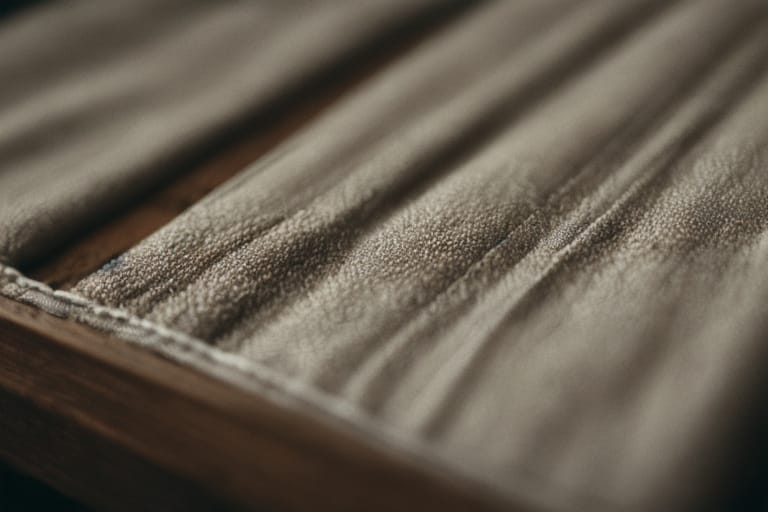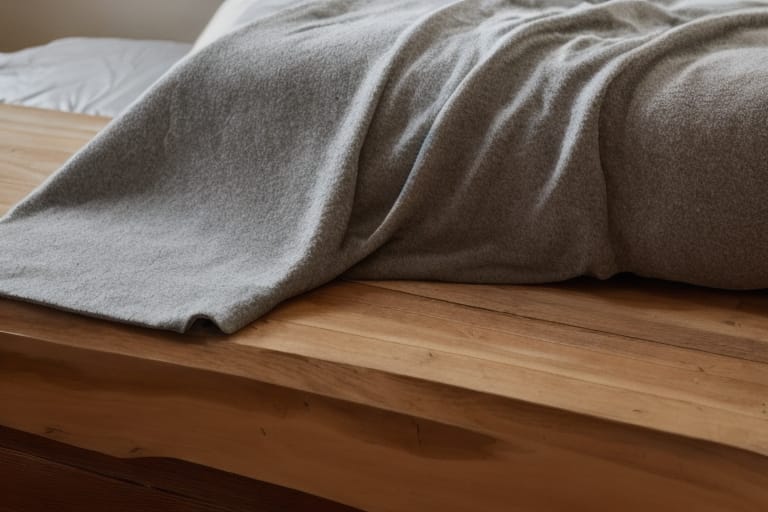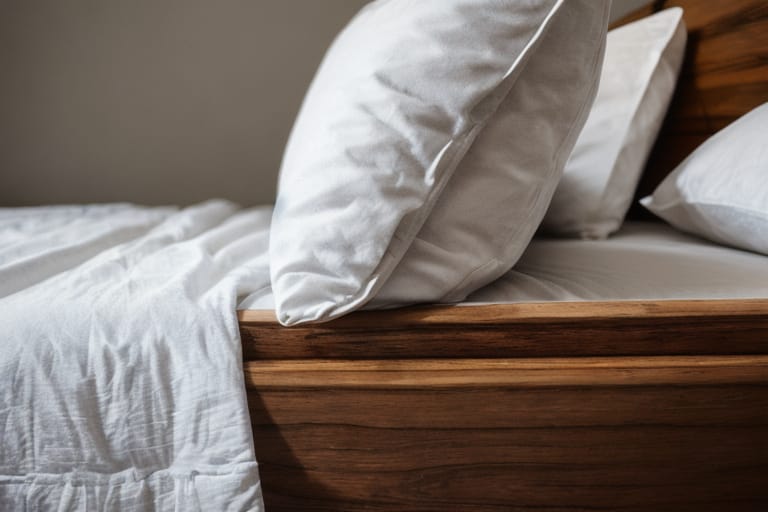When it comes to bedding, finding the right comforter for your sleep needs is key to getting a good night’s rest. For those who tend to sleep hot, a common question is: do down comforters keep you cool?
Down comforters are known for being warm and cozy. But thanks to new fabric technologies and innovative designs, down can also offer lightweight, breathable comfort ideal for hot sleepers. Let’s take a look at the pros and cons when it comes to using down comforters to stay cool.
A Quick Intro to Down Comforters
Before we dive in, let’s start with a quick overview of what exactly down comforters are and what makes them unique:
- Fill Material: Down comforters are filled with the fine, fluffy under plumage from ducks or geese known as down. This distinguishes them from alternative down comforters filled with synthetic materials.
- Loft and Fluffiness: High quality down offers exceptional loft and fluffiness for cloud-like coziness.
- Warmth: The fluffy fill is highly compressible and creates insulation that traps body heat effectively. This makes down one of the warmest natural fill materials.
- Durability: With proper care, a good down comforter can last over 10 years.
Now let’s look at the cooling capabilities of down…
The Cooling Properties of Down Comforters
When shopping for a lightweight, cooling down comforter suitable for hot sleepers, there are a few key factors to consider:
1. Fill Power
Fill power measures the loft or fluffiness of the down fill. It ranges from about 300-900. The higher the fill power:
- The fluffier and more insulating the down
- The more breathability and airflow it allows
For cool sleeping, a fill power between 600-800 provides the best balance of airiness and warmth. Lower fill powers tend to be heavier and trap more heat.
2. Fabric Technology
Advancements in fabric technologies like moisture-wicking and temperature regulating materials are game changers when it comes to cooling down comforters. Some top technologies to look for include:
- EvercoolTM fabric – Contains moisture-wicking phase change materials that help regulate temperature.
- Tones of CoolTM fabric – Uses conductive yarns to transfer heat away from the body.
3. Construction
The construction of the comforter impacts breathability. Key factors include:
- Baffle box design – Small fabric boxes that hold down in place for maximum loft.
- Lightweight shell fabrics – Breathable fabrics like cotton percale allow airflow.
- Gusseted walls – Allow down to fully expand for comfort.
The Benefits of a Cooling Down Comforter
Why choose a cooling down comforter over other bedding options? Here are some of the top benefits:
Enhanced Temperature Regulation
Thanks to advances in down technologies and materials, cooling down comforters excel at adapting to your body temperature needs throughout the night.
Lightweight and Breathability
Quality down comforters provide cloud-like coziness without the burden of excess weight, allowing air to freely circulate.
Luxurious Comfort
Even lightweight down offers that irresistibly fluffy, pillowy texture synonymous with luxury and comfort.
Durability
Cooling down comforters are a long-term investment that, with proper care, will provide many years of comfortable sleep.
Sustainability
Responsibly-sourced down coupled with eco-friendly fabrics make these an environmentally-friendly choice.
Now let’s compare down to alternative down comforters.

Down vs. Alternative Down Comforters for Cool Sleeping
For those seeking a down alternative that sleeps cool, synthetic fills offer options with their own pros and cons.
Fill Power
Alternative fills don’t offer fill powers as high as premium down. But they can provide decent loft and airflow.
Year-Round Temperature Regulation
Synthetics are engineered for breathability in warm months but often lack the adjustability of down year-round.
Affordability
Quality down comes at a price. Alternatives can offer similar lightweight comfort and cooling at lower price points.
Allergies
For those sensitive to feathers, hypoallergenic synthetic fills provide cooling comfort without allergy concerns.
Features to Look For
When evaluating cooling down comforters, keep an eye out for these ideal design features:
Premium Materials
Top fabrics like ** Egyptian cotton**, bamboo rayon, and Tencel__ offer supreme breathability. Premium downs like goose down provide higher fill power.
Baffle Box Construction
Baffle boxes stabilize fill for maximum, uniform loft and airflow through stitch-less walls.
Lightweight Structure
Look for terms like “summer-weight” with fill weights between 15-35 oz for easier heat release.
Moisture-Wicking Properties
Fabrics with moisture-wicking technology and phase change materials provide instant cooling relief.
| Pros | Potential Cons |
|---|---|
| Excellent temperature regulation | Higher initial investment |
| Light, airy, breathable design | Require more delicate care |
| Luxurious look and feel | Not ideal for year-round use in cold climates |
| Long-lasting durability | Heavier options may sleep too warm |
Caring For Your Down Comforter
To get the most out of a cooling down comforter, proper care is key:
Frequent Fluffing
Fluff the down inside the duvet daily to maximize loft and airflow.
Proper Washing
Use a front-loading washing machine for large comforters. Delicates cycles with mild detergent help retain fluffiness.
No High Heat Drying
Tumble dry low or line dry to prevent damage to down clusters.
Storage Best Practices
Store cleaned comforters loose in breathable casing like cotton during warmer months.
Top-Rated Cooling Down Comforters
Ready to experience the lightweight luxury of cooling down? Here are two top-ranked options:
1. Snug Cooling Comforter
- 600 fill power down
- Tones of CoolTM fabric Includes phase change materials
- Queen sizes start at $249
“This comforter sleeps so cool – perfect for hot sleepers like me!”
2. Beyond Down Gel Comforter
- Gel fibers offer advanced cooling technology
- Baffle box design
- Queen sizes start at $179
“My quality of sleep has never been better after switching to this comforter!”

Frequency Asked Questions
What is the best down alternative fill for hot sleepers?
For superior cooling properties similar to down, gel microfiber and phase change materials are ideal alternative fills to look for. These synthetic options provide exceptional breathability and heat absorption.
How do I make my down comforter cooler?
Look for lightweight summer down comforters specifically designed for breathability with lower fill weights and moisture-wicking fabrics. You can also supplement with a thin cotton coverlet during warm weather.
Is goose down or duck down better for a cooling comforter?
Goose down tends to provide higher fill powers resulting in better loft and breathability. But duck down comforters can also work well for cooling depending on overall construction and materials used.
Should I get a cotton cover for my down comforter?
Lightweight cotton covers can help protect down comforters during warm weather while improving airflow. Look specifically for breathable percale cotton rather than thicker, warmer options.
What is the warmest down comforter for winter?
For superior insulation in frigid weather, down comforters with 750+ fill power and higher fill weights like 50 oz.+ deliver the most warmth. Combine with a cozy duvet cover and blanket layered as needed.








